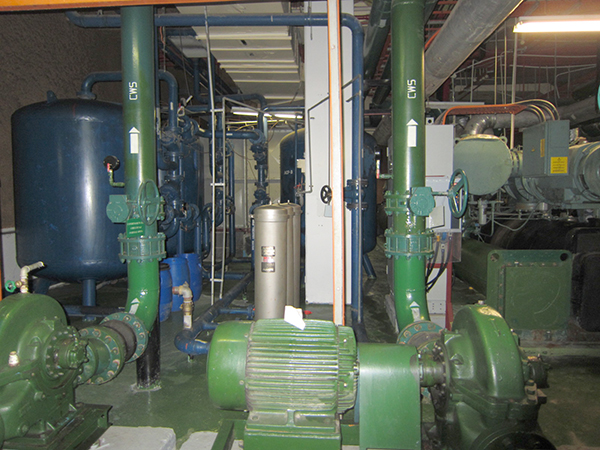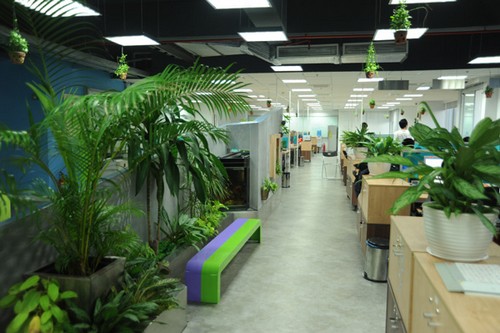Saturday, 28/02/2026 | 05:41 GMT+7
In Vietnam, buildings' energy consumption accounts for about 35%. A survey by Hanoi Energy Conservation Center (Hanoi ECC) to assess the current state of energy use in 10 office buildings showed that 98% of the energy used is electricity. The remaining 2% is from gas and oil. In particular, air conditioning system, lighting and elevator systems are consuming the most energy.

Chiller system in a building
In some buildings, reducing energy use is a problem that has been and always be focused. Many measures were applied to the buildings by investors such as replacing with a Chiller air conditioning system, installation of water pump inverter, elevator system inverter; lighting distribution system, installed lighting sensors and replaced light bulbs with LEDs. However, according to the survey, the use of energy in buildings has yet to achieve desired results. The reason is the lack of periodic assessment of energy consumption. Besides, energy managers must also work multitasking and people’s awareness of the use of the building is not high. This means potentials to save energy in buildings are still very large.
In recent years, Hanoi also has many measures to support energy efficiency improvement in buildings. Many conferences have been held to introduce the model of energy management, ISO 50001, popular high-performance devices, and efficient experiences in saving energy in buildings.

Lighting distribution system and installation of energy saving light bulbs in an office building
The project of Low Carbon Transition in Energy Efficiency (LCEE) sponsored by the Government of Denmark also supports energy savings in the construction sector. Project components include supporting Ministry of Construction to implement the national technical standards QCVN 09: 2013 / BXD of the energy efficient buildings. This is the important standard and a legal tool for speeding up the implementation of the national target program on energy efficiency and savings issued by the Prime Minister .
According to ECC Hanoi's audit of the 10 buildings, if applicable solutions and technical management of energy efficiency can be realized, nearly 1.3 billion kWh of electricity can be saved per year. This figure is equivalent to 15% of total electricity consumption.
Quang Minh








 Consultation on the methodology for developing and updating energy consumption standards for four major industrial sectors
Consultation on the methodology for developing and updating energy consumption standards for four major industrial sectors
 Opening of the 2025 Energy-Efficient Equipment and Green Transition Exhibition Fair
Opening of the 2025 Energy-Efficient Equipment and Green Transition Exhibition Fair
 Energy-saving solutions and green transition promotion
Energy-saving solutions and green transition promotion
 The 9th VEPG Steering Committee Meeting: Strengthening Coordination for Viet Nam’s Just Energy Transition
The 9th VEPG Steering Committee Meeting: Strengthening Coordination for Viet Nam’s Just Energy Transition